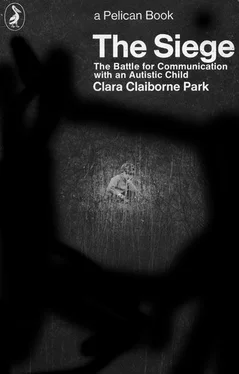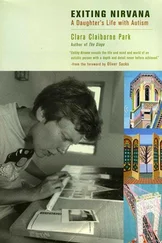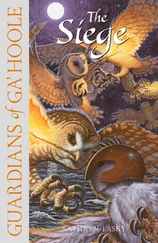Though I once thought of this as a long chapter, I realized in time that it could not be. I have not the right to be circumstantial here. Elly’s privacy I have not respected (though I have changed her name, and the names of my other children) because I thought that the good that might come from telling her story would outweigh the hurt she might suffer if one day she should grow well enough to read it. But to tell stories about anyone else is neither right nor necessary. Other besiegers — street-workers, doctors, ministers, teachers, lovers, and friends-know what I know and will supply examples for me.
When I began this book I had an epigraph for it — the great sonnet of assault in which John Donne implored his God to batter his defences down. I decided that I could not put it at the beginning, since it would haze over this story with an atmosphere of piety which would be totally false. Yet this book is, among other things, a personal record, and if it is to be a true one I cannot leave out these words which sustained me so many times when I had little else:
Batter my heart, three-personed God, for you
As yet but knock, breathe, shine, and seek to mend;
That I may rise and stand, o’erthrow me, and bend
Your force to break, blow, burn and make me new.
I, like an usurped town, to another due,
Labour to admit you, but oh, to no end;
Reason, your viceroy in me, me should defend,
But is captived, and proves weak or untrue.
Yet dearly I love you, and would be loved fain,
But am betrothed unto your enemy:
Divorce me, untie, or break that knot again,
Take me to you, imprison me, for I
Except you enthrall me, never shall be free,
Nor ever chaste, except you ravish me.
It is all in theological terms, but let them stand. They are no more false than any others. I know no better description of the terrible imperative of the assault of love, which brings us godless ones as close as we can come to the experience that others call God.
Yet it is not with myself that this book should end, but with Elly and with the others, and so I will tell one more story. I can tell it because it is not about a friend, but a stranger. One bright warm afternoon a year ago I was working in the garden when I was accosted by a student — not a student of mine, but one of the sheltered and fortunate habitues of my husband’s college. This young man, in his madras shorts, was naked to the waist and barefoot, he was leaning on a pretty girl, and he was staggering drunk. To my astonishment, he seemed to have something to say to me. All sorts of feelings rose up in me, as that college boys were losing whatever vestiges of shame they had ever had, that after all there were certain standards, that he ought to know better than to speak to a professor’s wife in his condition. If Elly had not taught me to wait and listen and look beneath the surface — if I had not learned from her that dignity is the most expendable of all satisfactions — I would have told him off, or moved away. Instead I began to hear what he was saying. ‘You don’t know me,’ he said, ‘and I wouldn’t be saying this if I weren’t drunk, but I think Elly’s beautiful. She makes something magic out of that patch of green lawn we think is just an ordinary world.’
I forgot he was drunk and disorderly. I told him she was a fairy and that’s why she didn’t talk, and he smiled and staggered away. The next day he wrote me a letter. I copy it here.
Dear Mrs Park,
I am the drunk that you were so nice to as I passed by your yard Saturday afternoon. Even though sober now, I am no more capable of explaining to you just how Elly has affected me. Elly transforms our messy back yard into a wonderland. She makes a world that you and I can only see in daydreams. Sometimes when I look out the window and see her dancing to our music I can almost see that world with her. Elly can sit and watch my friends work on their motor cycles all afternoon and never say a word. Yet she seems to be as much in tune with them as I could be with all the conversation in the world.
I know that being Elly’s mother must be a very discouraging, very frustrating experience. After only a few moments of a few afternoons I have felt die need to pressure her into talking — the need to break into her world verbally. I hope that someday Elly will become well and have a happy life. I’m writing you because I’m sure that because you’re Elly’s mother you don’t get enough chances to appreciate Elly — to only gain and not sacrifice — as I have. I thought maybe it would help to hear what I had to say. I wish I could express it better for you.
P. S. I don’t usually talk like this so please don’t tell on me.
It helps, of course. It helps a lot, in many ways. It helps to know that a stranger, seeing Elly, can look beyond her embarrassing defects to sense something of her strange integrity, and it helps more deeply than anything else can to know that stranger can touch stranger, in gentleness and love.
I have no reports on Elly’s intelligence tests at three, if indeed any figures were arrived at. At seven years and ten months she was given the Wechsler intelligence test. The tester’s report follows.
May 10, 1966
I felt that the verbal tests of WISC [Wechsler Intelligence Scale for Children] would be hopelessly inappropriate but agreed to give Elly die WISC performance tests. I do not regard these results as measures of Elly’s capacity in the usual sense but am sending diem as an account of what the child actually did within the (for her) rather rigid framework of die scale.
Raw scores on Picture Completion, Picture Arrangement, and Coding were 6, 6, and 22, respectively. Test age equivalents for these are 5,5 and 6 years. Raw Scores on Block Design and Object Assembly were 16 and 19, respectively, with test age equivalents of 9,5 and 10 years.
The half hour was apparently a pleasant one for Elly though two or three times she appeared to be diverted from the tasks by factors of which I was not aware. Picture Completion and Picture Arrangement presented many situations wholly unfamiliar to her. On Coding, she made 110 errors but was slow, perhaps because of what appears to me to be some confusion of handedness. [38] There is no additional evidence of this. The Institute neurologist thought that, at three and a half, she was clearly right-handed.
On Block Design, she worked rapidly, appraising and correcting her errors deftly. In Object Assembly, Face was disproportionately difficult for her. She placed the nose and mouth pieces correctly against the largest piece and, a few inches away, assembled a pair of the remaining parts. This required the time limit of three minutes. Mannikin was correctly assembled in 33" as against the time limit of 120". On Horse, she earned a time bonus. Auto was finished in 1 minute though the limit is 3 minutes. An inversion of the door piece lost a possible time bonus.
On all these tests, I adhered to the WISC directions. I felt that communication was adequate for die needs of the test situation. While I would not offer these results as a real measure of this child’s ability, I find it interesting that these disparities in accomplishment add up to a Performance IQ in the lower half of the ‘Normal’ range.
Elly took this test in the tester’s own home, where she had already visited several times. One year later (as this book went to press) Elly was given the Stanford-Binet by her school psychologist, in the standard school testing situation. Whether because of the changed circumstances or the differences between the tests, it was not thought possible to assign her a meaningful score. The psychologist then attempted to give her the WISC of a year before, with no better success.
Читать дальше












